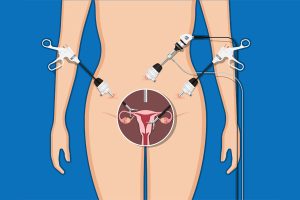Without a doubt, one of the biggest reasons patients call our urology office is to ask about having a vasectomy procedure. It’s one of the most common treatments we do, but there are so many myths out there that make some men too afraid to even say the “V” word.
The American Urological Association says every year about half a million men get the “little snip” or male sterilization that blocks sperm from reaching the semen. Think about all of the other men who are seriously considering a vasectomy but won’t get one out of fear? Does the thought of having one make you squirm or feel uncomfortable? Relax and read on. (You’ll feel better about the whole thing, we promise.)
1) The Big Fear – It’s Gonna Hurt (Bad)
Your urologist understands that a vasectomy takes place in a very “sensitive” part of the body, one where you’d rather not have someone poking around with a scalpel. It’s enough to make even the toughest, manliest man feel uncomfortable. While every patient is different, a vasectomy is generally a pain-free procedure. You’ll get a generous dose of numbing medication before treatment. There’s usually just a small incision to get to the vas deferens or the two tubes that transmit your sperm.
When the numbing medication or anesthesia wears off, you might experience a dull ache or mild pain. You’ll feel no pain during the procedure. There could be some swelling. You can manage any post-procedure symptoms using anti-inflammatory pain medications and using an ice pack or frozen vegetables on the area. If for some reason you are uncomfortable for a week or more after your vasectomy, it’s essential to talk to your urologist right away.
2) A Vasectomy Can Hurt My Sex Drive
A vasectomy should never interfere with your sex drive. In fact, it should give your intimate life a boost because you’ll no longer have to worry about unwanted pregnancies with your partner. Everything should stay the same, including your sexual desire, erections, and ability to ejaculate. You’ll want to make sure you’re fully recovered from your vasectomy procedure before attempting sexual intercourse. Some men can experience a dull pain in their testicles soon after the procedure, but it will go away.
3) Vasectomies Aren’t Even Effective
Depending on your age, you might have heard horror stories or even read articles about how ineffective and useless vasectomies can be. We’re here to tell you that’s not the case! Thanks to advancements in medical technology and treatments, when performed by a highly-skilled doctor like your urologist, has a failure rate of zero percent. (Yes, ZERO). However, you’ll want to use caution during sex immediately following your vasectomy. It tends to take anywhere from ten to 20 ejaculations before you can be sure your semen is sperm-free. Studies show that only 1 to 2 women out of 1,000 will get pregnant in the first year after their partners undergo the vasectomy procedure. If you’re concerned about this, you can always ask your urologist for a sperm count, so you’ll know exactly where you stand.
4) There’s No Turning Back
If you and your partner have been discussing a vasectomy, you must rule out having kids in the future. With that being said, if you should undergo a vasectomy procedure and then have second thoughts, there’s a possibility the procedure can be reversed. Here’s what you have to understand about a vasectomy reversal, they’re not always easy or effective.
A reversal can be simple. Your urologist makes an incision on either side of your scrotum to check your vas deferens fluid for sperm. If you’ve got swimmers present, we can reconnect the tube, and you’re back in business. However, if there’s no sperm present, you’ll need a much more in-depth procedure to bypass any blockage. It’s important to note that the longer it’s been since your sterilization, the more it could have an impact on how successful your reversal is. This type of surgery is different than the vasectomy; it generally takes four or five hours.
If you’ve been considering a vasectomy or having a sterilization reversal, then it’s time you talked to your urologist at Urology. We hope reading this answers some of your questions and alleviates some of your concerns.






